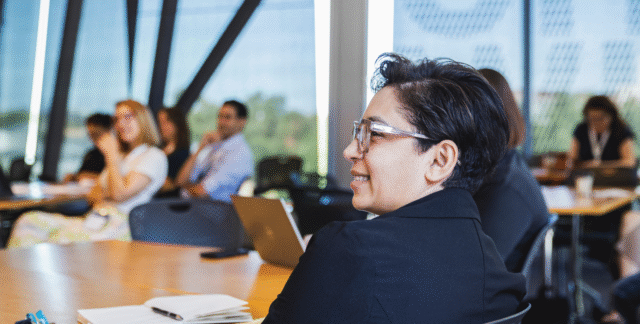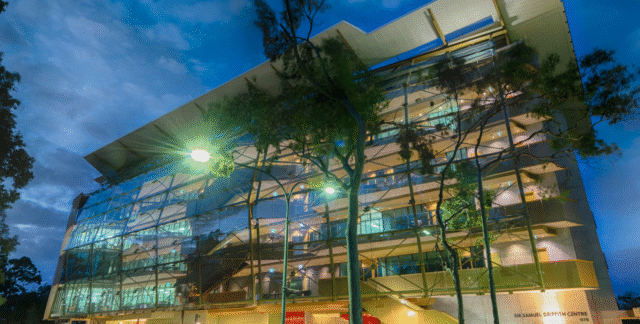The University of Western Australia has earned their first SAGE Cygnet Award, for their work to improve the gender balance in the School of Engineering.
Back in 2012, UWA knew that Engineering had a gender equity problem, with the proportion of women in academic staff staying low, at around 17-20%. However, over the last decade they have systematically worked to address the problem, tackling the ongoing barriers to recruitment, retention, and progression for women.
Women now make up 71% of Level B staff in the Teaching and Research cohort (where there were previously none at all), and there have been moderate increases in the total number of women in the School (up five percentage points). More women have recently been hired at junior levels A and B, further bolstering the academic pipeline.
Cultural change in the pipeline
Biomolecular scientist Professor Charlie Bond has been part of this change-making for several years, and is now Chair of the university’s Gender Equity Working Group.
“This is a fantastic example of the power of acknowledging a wickedly difficult equity issue and committing to address it with a data-informed focus on impact,” said Professor Bond.
Dr Janin Bredehoeft, Chief Executive of SAGE, congratulated the University on their long-term efforts to make change.
“UWA’s Cygnet Award application shows an institution making change from the ground up. They tackled a problem that was once so normalised it was difficult to even see, and made real cultural change to turn that around.”
“I congratulate the University of Western Australia and all the people involved in this initiative for their persistence and determination to make Engineering a more equitable place to work.”
When there is “no gender problem”
A decade ago, the first hurdle to change was a lack of recognition of the problem from inside the School of Engineering. An early research project showed that ECM leadership team did not agree that there was a “gender problem” that needed to be solved.
Those who recognised the issue were likely to blame the “highschool pipeline” and believe that nothing could be done within the institution’s own culture to make change.
The university also found evidence that senior women felt unsupported and undervalued.
Acting on equity
The University introduced gender equity targets: 40:40:20 for the School Board and 50% for Heads of Department. They also created an Inclusion and Diversity Advisory group, a 0.2 FTE Academic Lead for Diversity, Equity, and Inclusion and changed the School Governance constitution.
They also made major changes to the academic promotions process, increasing the use of achievement relative to opportunity, ensuring research funding schemes take into account diversity, equity and inclusion, and undertaking women-focussed recruitment drives to address gender imbalances in STEMM schools.
The School put in additional supports for women, who were actively encouraged to take on leadership roles.
Cultural change was also encouraged – alongside increasing the discussion of the gender equity problem, unconscious bias training was made available for all staff.
A real impact for women staff
By 2023, women in the School of Engineering reported higher levels of purpose and empowerment than academic women across the College of Schools. Women in Engineering are more positive with regards to their managers and role clarity, compared to the women across the Engineering faculty.
Importantly, here was a reduction in the number of women staff leaving prior to retirement. In 2023, the School achieved a poignant milestone – for the first time in its history, the School saw the retirement of women professors who had been with the School for the whole length of their academic career.
While there is still a long way to go in reaching gender parity, these cultural changes are a positive sign that things will continue to improve over the longer term.
About the Award
This is UWA’s first SAGE Cygnet Award, following their Bronze Award in 2020. For more detail, read their full application for the Award.



